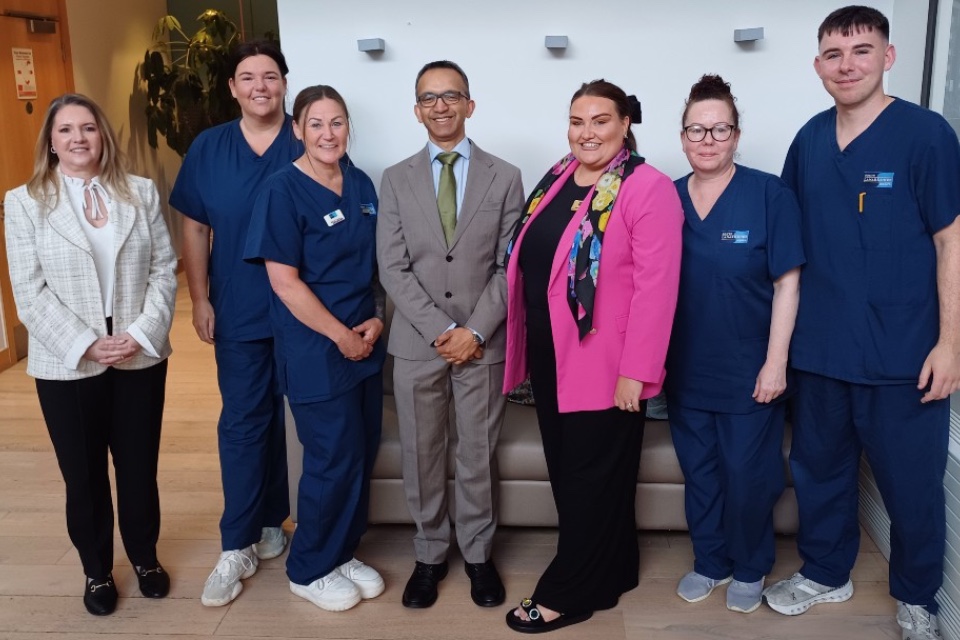For decades, UK healthcare has been dubbed an institution made by men for men, but the NHS is on the cusp of an integral change. While significant disparities between healthcare for women and men remain, a shift in political attitude, supported by a recognition that women and men have different health needs throughout their lives, should herald a new era of healthcare for women.
The challenge is not only in changing clinician awareness and understanding and creating better, more relevant pathways for female specific health issues, but also encouraging women to demand better health outcomes, from puberty through fertility, menopause and beyond. Better information combined with tailored, relevant service delivery will be key to achieving the early intervention that underlines the preventative care model.
Alison Meadows, joint CEO, Priority Digital Health celebrates the change and outlines the importance of a digital solutions platform that can integrate multiple health and wellbeing services to engage, educate and empower women of every age and facilitate better patient outcomes…
Health Strategy
The NHS’ introduction of a women’s health ambassador to address gender health inequality is hugely welcome. The reasons for the appointment, however, underline the endemic challenges that remain surrounding women’s treatment within the NHS: four out of five women believe they are not properly listened to by doctors and other health professionals.
From periods to menopause, contraception to fertility, women’s issues have been side-lined at best, ignored at worst, for generations. Nearly two thirds of respondents with a health condition or disability said they did not feel supported. Issues over which women felt ignored or belittled included miscarriage, the menopause, and debilitating symptoms and chronic pain, including endometriosis. This health gap is exacerbated for overweight women — anti-fat stigma can result in doctors failing to diagnose an issue, focusing on weight loss instead — or a woman of colour. Black women in the UK are four times more likely to die in pregnancy and childbirth.
This conflation of such serious issues is hugely damaging to women’s health outcomes – and goes against the NHS drive towards improving preventative careand embracing a far more holistic approach to patient health. Why is a woman gaining weight? Are there issues around addiction that may also be linked back to conditions such as period pain, fertility concerns or perimenopause? Failure to consider the patient in the whole will inevitably lead to crises – it is unacceptable thatnearly a million women in the UK leave the workforce due to menopause symptoms or that so many young lives are devastated by endometriosis.
Awareness and Understanding
Diabetes is a prime example of a disease that can affect men and women differently. While men are more likely to be living with Type 2 Diabetes, women experience a number of specific symptoms that are easily overlooked or attributed to other causes. For example, women experiencing thrush and yeast infections, itchiness around the vagina and female sexual dysfunction, will be unlikely to consider diabetes as a possible cause. Many may opt to self-treat with off the shelf remedies – a fact that can only contribute to the high levels of under diagnosis of endemic high blood sugar levels.
The fact that so few women are aware that these symptoms could be a red flag for Type 2 diabetes exemplifies the need for change. There is need not only to improve clinician awareness and create dedicated care pathways but also to ensure women have a far better understanding of their own health and are empowered to speak up.
The misbelief that, however painful or life limiting, such problems are normal affects every area of women’s health. While menopause is now being discussed far more openly, there is still a focus on the physical symptoms, including hot flushes and weight gain. Many women unaware that experiences of chronic anxiety and insomnia could also be linked to hormonal change – and are often prescribed anti-depressants rather than exploring menopause specific solutions.
To achieve the new era of health equality, additional training is required for all clinicians. It is vital to highlight that these are important health issues and need to be treated as such not just anatomical ‘normal’ functions of women. In addition, services need to be tailored to provide the mix of clinical and social care required to meet the needs of women at different stages of life.
Digitally Empowered
There is also a huge opportunity to build on the investment in digital health to empower women to take control over their health and well-being. Over the past decade the use of period tracking and menopause apps has grown rapidly, with women increasingly confident in sharing both data and experiences. Trusted digital tools are helping with symptom checking, reassurance, education and understanding. This is encouraging both better understanding of issues and a recognition that women can and must ask for help when experiencing symptoms, enabling clinicians to achieve preventative care goals and minimising the risk of devastating crisis events.
Digital platforms will also help women to reach out for help. The confidentiality of the online model is particularly valuable for those women uncomfortable discussing their concerns with a doctor face or face or those who need to keep any interactions with the health service about menopause, periods, contraception or pregnancy completely private.
Women will not, however, continue to reach out if the quality of the experience delivered fails to match up to the claims of health equality. Patients will need to feel not only empowered by information but also heard, understood and supported by clinicians. They will need to see care pathways and services designed to meet the needs of women – from female specific weight loss plans to menopause support groups. Holistic, joined up, female centric care must be a foundation for the future of NHS service delivery.
Conclusion
The new, long overdue, focus on health equality irrespective of gender is extremely positive. It recognises, finally, that hormones affect men and women differently throughout every life stage, and a ubiquitous, one size fits all approach undermines health outcomes for all. To match strategic thinking with patient experience will require change. Both clinicians and patients need education; they need to be empowered with information and services that reflect the needs of the local community.
This shift to gender aware preventative care should lead to an improvement in outcomes for both men and women. It should transform the experience of women, encouraging individuals to question and ask for help. It should banish the concept of putting up with ‘normal’ female issues. It should lead to the development of high level, dedicated care pathways for both women and men. Just as women should never feel compelled to leave the workplace due to the menopause, the fact that suicide remains the biggest cause of death in men under the age of 50 is completely unacceptable.
Equality of health access regardless of gender should be an imperative – and digital tools will play a vital role in educating and empowering individuals to access the right level of care at every stage of their lives.






